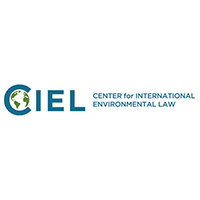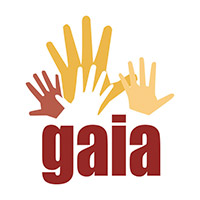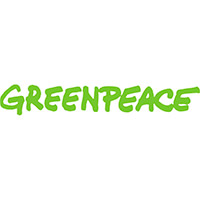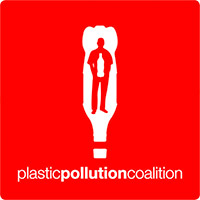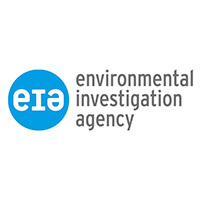The Global Plastics Treaty represents a unique and crucial opportunity for a worldwide coordinated initiative to effectively resolve the ongoing plastic pollution crisis at all stages of the life span of plastics. Nevertheless, there exists a risk of its potential dilution and corruption. We must unite together to advocate for an ambitious treaty, ensuring its effectiveness in mitigating the plastic pollution crisis.
As countries continue the negotiations, the pressure from civil society will be instrumental in ensuring that the treaty:
Against plastic pollution, let`s demand REAL solutions ✊📢
As negotiations for a #PlasticsTreaty are happening in Ottawa, let`s raise our voices and say NO to greenwashing and half-hearted measures that only scratch the surface of the plastic crisis.
Join us in demanding a strong and ambitious #PlasticsTreaty that slashes plastic production at its source!
✍️Tap the link in our Instagram bio to sign the petition and ask the Canadian government to help end the age of plastic by championing a strong Global Plastics Treaty!
.
.
.
#falsesolutions #plasticscrisis #singleuseplastic #plastic #plasticfree #INC4 #Canada #Ottawa #greenpeace #GlobalPlasticsTreaty #greenwashing #recycling #cleanup #cleanups #bioplastics #climatecrisis #EndOil #plasticpollution #realsolutions #zerowaste #reuse #refill #INC4 #microplastics

Against plastic pollution, let`s demand REAL solutions ✊📢
As negotiations for a #PlasticsTreaty are happening in Ottawa, let`s raise our voices and say NO to greenwashing and half-hearted measures that only scratch the surface of the plastic crisis.
Join us in demanding a strong and ambitious #PlasticsTreaty that slashes plastic production at its source!
✍️Tap the link in our Instagram bio to sign the petition and ask the Canadian government to help end the age of plastic by championing a strong Global Plastics Treaty!
.
.
.
#falsesolutions #plasticscrisis #singleuseplastic #plastic #plasticfree #INC4 #Canada #Ottawa #greenpeace #GlobalPlasticsTreaty #greenwashing #recycling #cleanup #cleanups #bioplastics #climatecrisis #EndOil #plasticpollution #realsolutions #zerowaste #reuse #refill #INC4 #microplastics
“Indigenous Peoples are rights holders, not stakeholders and the lack of our direct engagement in these spaces violates UNDRIP article 41 and ultimately, will lead to a treaty that creates more issues, rather than solving them.”
Above is a quote from ICC’s first intervention at the INC-4 plastic pollution negotiations this week. ICC requested the Arctic be recognized in the text as a sensitive region, as it is in the Minamata and Stockholm Conventions.
It also asked that the United Nations Declaration on the Rights of Indigenous Peoples be recognized in the operative text of the document.
ICC Vice Chair Lisa Qiluqqi Koperqualuk emphasized, “When the text acknowledges human health and the environment, it needs to include the right to a clean, healthy, and sustainable environment.”
The need for a rights-based approach was emphasized by the Vice-Chair at the plenary.
#Inuit #PlasticsTreaty #beatplasticpollution

“Indigenous Peoples are rights holders, not stakeholders and the lack of our direct engagement in these spaces violates UNDRIP article 41 and ultimately, will lead to a treaty that creates more issues, rather than solving them.”
Above is a quote from ICC’s first intervention at the INC-4 plastic pollution negotiations this week. ICC requested the Arctic be recognized in the text as a sensitive region, as it is in the Minamata and Stockholm Conventions.
It also asked that the United Nations Declaration on the Rights of Indigenous Peoples be recognized in the operative text of the document.
ICC Vice Chair Lisa Qiluqqi Koperqualuk emphasized, “When the text acknowledges human health and the environment, it needs to include the right to a clean, healthy, and sustainable environment.”
The need for a rights-based approach was emphasized by the Vice-Chair at the plenary.
#Inuit #PlasticsTreaty #beatplasticpollution
CIEL’s Daniela Durán reminds us what we came to #PlasticsTreaty #INC4 negotiations to accomplish.
A treaty fit for purpose will:
✂️ Reduce & limit plastic production to end plastic pollution
🧪 Detoxify the plastic supply chain
🏭 Stop the expansion of plastic production capacity
🤰🏽 Ensure the enjoyment of human rights, for us and for future generations
Let’s remind negotiators what ambition looks like!

CIEL’s Daniela Durán reminds us what we came to #PlasticsTreaty #INC4 negotiations to accomplish.
A treaty fit for purpose will:
✂️ Reduce & limit plastic production to end plastic pollution
🧪 Detoxify the plastic supply chain
🏭 Stop the expansion of plastic production capacity
🤰🏽 Ensure the enjoyment of human rights, for us and for future generations
Let’s remind negotiators what ambition looks like!
While progress has been slow at the #inc4 in #ottawa, right holders (we are not stakeholders) made some strong statements yesterday and demand that governments around the world must advance a global deal that prioritizes protection of human rights, health and the environment from plastic pollution.
At CAPws, we are very proud to be on the right side of history!
#PlasticsTreaty #ToxicsFreeFuture #planetnotplastic

While progress has been slow at the #inc4 in #ottawa, right holders (we are not stakeholders) made some strong statements yesterday and demand that governments around the world must advance a global deal that prioritizes protection of human rights, health and the environment from plastic pollution.
At CAPws, we are very proud to be on the right side of history!
#PlasticsTreaty #ToxicsFreeFuture #planetnotplastic
While progress has been slow at the #inc4 in #ottawa, right holders (we are not stakeholders) made some strong statements yesterday and demand that governments around the world must advance a global deal that prioritizes protection of human rights, health and the environment from plastic pollution.
We are very proud to be on the right side of history!
#PlasticsTreaty #ToxicsFreeFuture #planetnotplastic

While progress has been slow at the #inc4 in #ottawa, right holders (we are not stakeholders) made some strong statements yesterday and demand that governments around the world must advance a global deal that prioritizes protection of human rights, health and the environment from plastic pollution.
We are very proud to be on the right side of history!
#PlasticsTreaty #ToxicsFreeFuture #planetnotplastic
It`s Day 05! Quote of the day: “If you are neutral in situations of injustice, you have chosen the side of the oppressor. If an elephant has its foot on the tail of a mouse, and you say that you are neutral, the mouse will not appreciate your neutrality.”
— Archbishop Desmond Tutu.
#INC4 #PlasticsTreaty #BreakFreeFrompLastic #FreedomDay

It`s Day 05! Quote of the day: “If you are neutral in situations of injustice, you have chosen the side of the oppressor. If an elephant has its foot on the tail of a mouse, and you say that you are neutral, the mouse will not appreciate your neutrality.”
— Archbishop Desmond Tutu.
#INC4 #PlasticsTreaty #BreakFreeFrompLastic #FreedomDay
Updates from the past three days:
✅ managed to bump into one of our champion at ditjen.pslb3_klhk kementerianlhk : Pak usosidik to hand over iddkp latest publication on reuse. Do you know that reuse can generate new business up to 1.5T IDR in Indonesia by 2030?
✅ I participated in 4 reuse side events and had multiple side meetings on reuse topics (some of them are a potential future collaborations! 😍). Do you know that reuse is not only just about materials but also a system?
❌ There are multiple misleading ads around the venue said: plastics deliver water, plastics save lives, plastic, plastics reduce food waste, etc. 🤢🤮 DO YOU KNOW THAT PLASTICS CONTAMINATE YOUR BODY (AND ALSO ENVIRONMENT) WITH MICROPLASTICS AND TOXIC CHEMICALS???
❌ almost 200 lobbyist from plastic industries (+ 4 from Indonesia!) registered as government delegates and observers. Do you think their presence can lower ambitious to the treaty?
#PlasticsTreaty #INC4 #Reuse #ReuseRevolution #ReuseSystems

Updates from the past three days:
✅ managed to bump into one of our champion at ditjen.pslb3_klhk kementerianlhk : Pak usosidik to hand over iddkp latest publication on reuse. Do you know that reuse can generate new business up to 1.5T IDR in Indonesia by 2030?
✅ I participated in 4 reuse side events and had multiple side meetings on reuse topics (some of them are a potential future collaborations! 😍). Do you know that reuse is not only just about materials but also a system?
❌ There are multiple misleading ads around the venue said: plastics deliver water, plastics save lives, plastic, plastics reduce food waste, etc. 🤢🤮 DO YOU KNOW THAT PLASTICS CONTAMINATE YOUR BODY (AND ALSO ENVIRONMENT) WITH MICROPLASTICS AND TOXIC CHEMICALS???
❌ almost 200 lobbyist from plastic industries (+ 4 from Indonesia!) registered as government delegates and observers. Do you think their presence can lower ambitious to the treaty?
#PlasticsTreaty #INC4 #Reuse #ReuseRevolution #ReuseSystems
⏰️ No es demasiado tarde Sr. P!
#lessplasticmorelife #menosplásticomásvida
#BreakFreeFromPlastic #plasticstreaty

⏰️ No es demasiado tarde Sr. P!
#lessplasticmorelife #menosplásticomásvida
#BreakFreeFromPlastic #plasticstreaty
